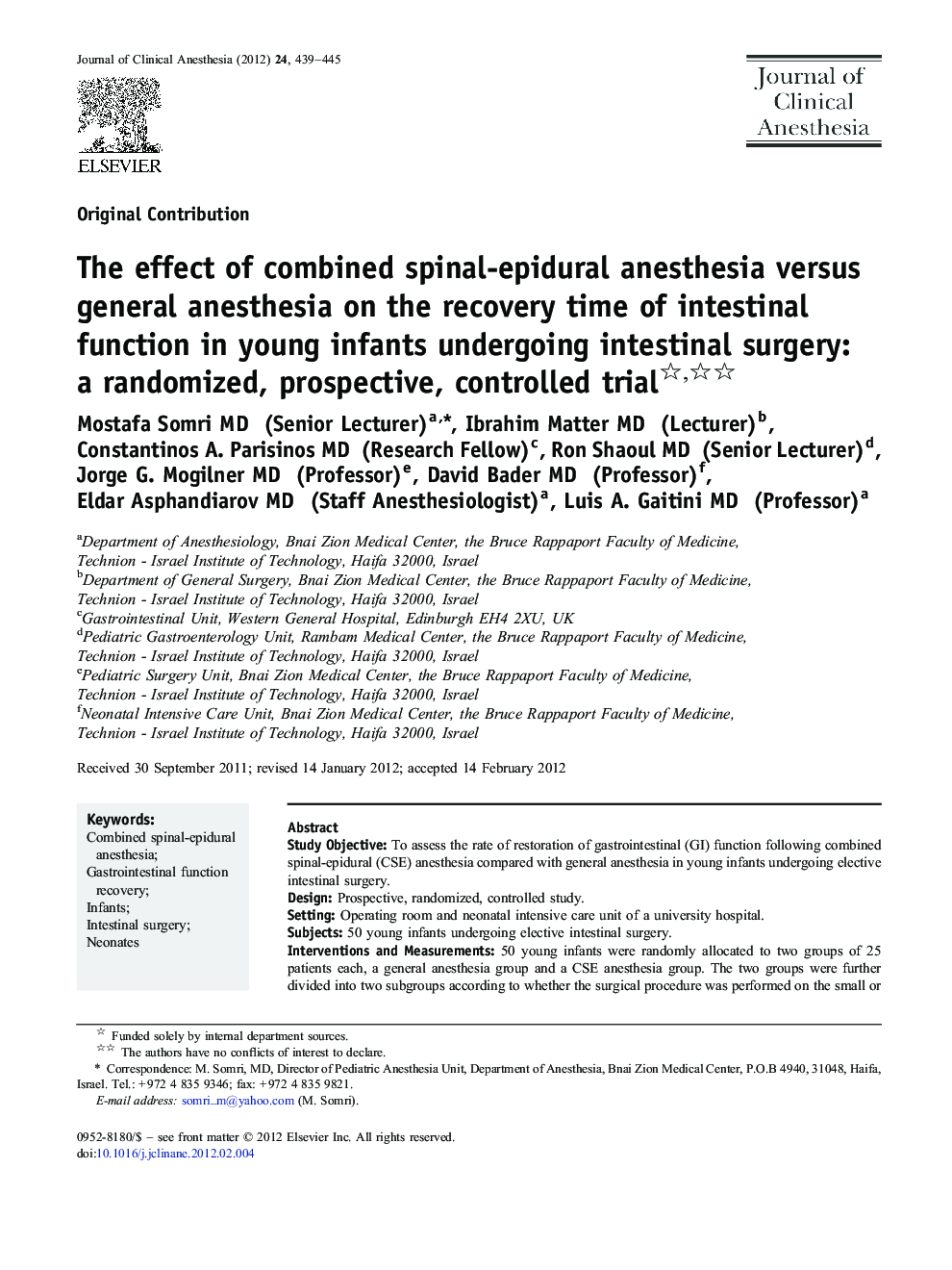| Article ID | Journal | Published Year | Pages | File Type |
|---|---|---|---|---|
| 2762768 | Journal of Clinical Anesthesia | 2012 | 7 Pages |
Study ObjectiveTo assess the rate of restoration of gastrointestinal (GI) function following combined spinal-epidural (CSE) anesthesia compared with general anesthesia in young infants undergoing elective intestinal surgery.DesignProspective, randomized, controlled study.SettingOperating room and neonatal intensive care unit of a university hospital.Subjects50 young infants undergoing elective intestinal surgery.Interventions and Measurements50 young infants were randomly allocated to two groups of 25 patients each, a general anesthesia group and a CSE anesthesia group. The two groups were further divided into two subgroups according to whether the surgical procedure was performed on the small or large intestine. The main outcome of this study was to measure the recovery times of GI function by determining the time to the first postoperative stool, duration of nasogastric feeding, and onset time of full enteral nutrition. The secondary outcome was to detect adverse events postoperatively.Main ResultsRecovery of intestinal function was faster (P < 0.0001) and the frequencies of postoperative abdominal distension and pneumonia were less (P < 0.04) in infants who were anesthetized with CSE anesthesia than general anesthesia.ConclusionsCombined spinal-epidural anesthesia leads to faster restoration of GI function while reducing adverse events in infants who require elective intestinal surgery.
